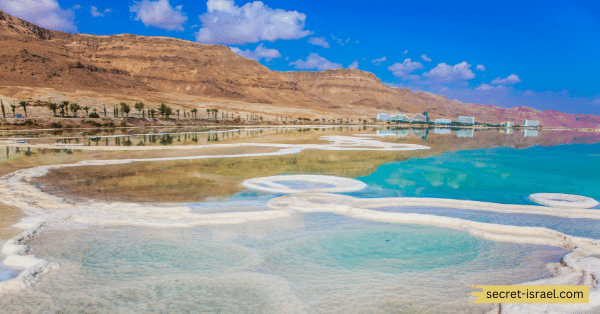If you’re looking for a vibrant and diverse place full of culture, history, and modernity, then Israel is your best option. Located on the southeastern shoreline of the Mediterranean Sea, this country has become one of the most sought-after tourist destinations in the world.
With its iconic cities like Jerusalem filled with centuries-old religious sites and historic places to explore; Tel Aviv’s fashionable nightlife and beautiful beaches; as well as Nazareth’s remarkable natural resources, no matter when or why you come here you’ll find something that explains why so many people choose to visit Israel again and again.
So if you’re planning your trip, be sure to consider what time of year is best for your needs. Whether it be during the winter months for some peace or during warmer months never miss a chance to explore its spectacular beauty – there’s no wrong time to visit this fantastic destination!
Overview and Reasons To Visit Israel
Israel is a one-of-a-kind country, boasting both old-world history and all of the modern conveniences you’d desire on vacation. From the ancient walls of Jerusalem to the gleaming glass buildings of Tel Aviv, Israel offers mind-stretching experiences for everyone who visits. With vibrant cities, breathtaking natural attractions, and cultural sites steeped in religious significance, travelers enjoy a blissful mix of adventure, culture, and leisure unlike anywhere else on earth.
Visitors will never run out of things to discover in Israel; no matter if you’re interested in escaping the hustle and bustle at a spa resort near the Sea of Galilee or exploring new cultures throughout Tel Aviv’s markets. Whether you come for an epic exploration around the country or simply want to relax by the Mediterranean Ocean, there’s something for every travel lover in Israel.

Weather and Climate in Israel
Located on the southeastern edge of the Mediterranean Sea, Israel enjoys a stunning climate that ranges from temperate to tropical. The temperature in Israel typically exceeds 80F° for four months during the middle of the year, making it quite hot and humid.
In addition to the heat, the climate in Israel boasts plenty of sunlight – on average more than 300 days of sun each year! During the winter months, average temperatures are usually between 47F°-60F° depending on location but can reach up to 90F° in certain areas. Rainfall varies throughout different parts of Israel but occurs mainly during the winter season.
December through March constitute a rainy season; some areas will experience dust storms which are caused by wind patterns that also influence temperature changes during spring and fall time.
The north of Israel has a typical especially Mediterranean climate with hot and dry summers, mild winters, and regular rainfall throughout most of the year. Average summer temperatures can reach 37° Celsius in the shade and winter temperatures generally stay between 8-20° Celsius. In southern Israel near the Negev desert, however, things are much drier and cooler with clear skies dominating for most of the year, although it does get plenty of end-of-summer showers.
Wind patterns are primarily easterly to the southeasterly outside of thunderstorms which bring warm southerly winds into Israel from the Sahara desert and even cold fronts during wintertime.

Best Time Frame for Visiting Israel
Visiting Israel offers travelers a variety of experiences depending on the season. One popular time to visit is early spring (March – April) when the weather is mild. During this time, visitors have the chance to experience one of Israel’s national holidays typically occur in late March or April like Yom Haatzmaut, Independence Day.
With warm, pleasant weather and beautiful landscapes, this is one of the most popular times to take in all that Israel has to offer. During these months, many places are flush with lovely wildflowers creating a breathtaking setting. Of course, while you’re here make sure to check out some of its amazing historical sites like Masada and Akko, or explore The Negev desert and enjoy activities like jeep tours or camel rides.
Late Spring (May – June) is also pleasant, offering visitors a warmer sun and plenty of time to enjoy Israel’s beach cities. Summers – July and August – tend to be hotter with occasional storms, but many people enjoy visiting during this timeframe because there are often festivals and other events occurring throughout the country.
The Fall months (September – October) offer cooler temperatures they can also be relatively dry which makes them ideal for desert exploration or hikes in the mountains. Winter months (November – February) can range from cool to cold with occasional rain, however, travelers who prefer avoiding crowds may find these months preferable for sightseeing.
When planning a trip to Israel, it’s important to consider the best time of year for visiting. Depending on whether you prefer mild temperatures and blooming flowers or cooler weather and fewer tourists, there is something for everyone.

Pros and Cons of Visiting Israel During Different Times of the Year
Visiting Israel is an experience of a lifetime, no matter the time of year. Each season brings its unique pros and cons that have to be considered when visiting. The summer months are usually the most popular time for tourists to visit Israel, as the weather is hot and mostly dry throughout. Temperatures during this season can climb above 40 degrees Celsius on occasion, so travelers must stay hydrated and avoid spending long periods in direct sunlight.
On the other hand, the lack of rainfall can make it an ideal time to explore the beaches along the coastline or take part in recreational activities such as camping, hiking, or biking. In contrast, the winter months bring cooler temperatures but more precipitation and swollen rivers that can impede some outdoor activities such as rafting or kayaking in certain areas.
One clear benefit of visiting during winter is fewer crowds; tourists will be able to take their time at historic sites without having to line up for extended periods. All in all, when visiting Israel one needs to consider both pros and cons from different times of the year and carefully plan out a travel itinerary accordingly; this will ensure travelers get to enjoy a great experience while avoiding any potential problems down the line.

In Conclusion
Israel is a beautiful country with a rich history, vibrant culture, and wonderful people. After considering all of the factors, the best time to visit Israel is in the spring or autumn when the weather is mild and pleasant. During these seasons, temperatures are not too hot and not too cold, remaining in the mid-sixties – low-seventies Fahrenheit range.
While visiting during this time of year may bring slightly more crowds compared to winter months, you can expect comfortable temperatures for exploring Israel’s many outdoor sites like National Parks or taking part in its unique traditions.
Whether you come for sightseeing, religious ceremonies, fun at the beach or just soaking up some Mediterranean sun––spring or autumn offers an ideal window of opportunity to create unforgettable memories of your visit to Israel!











